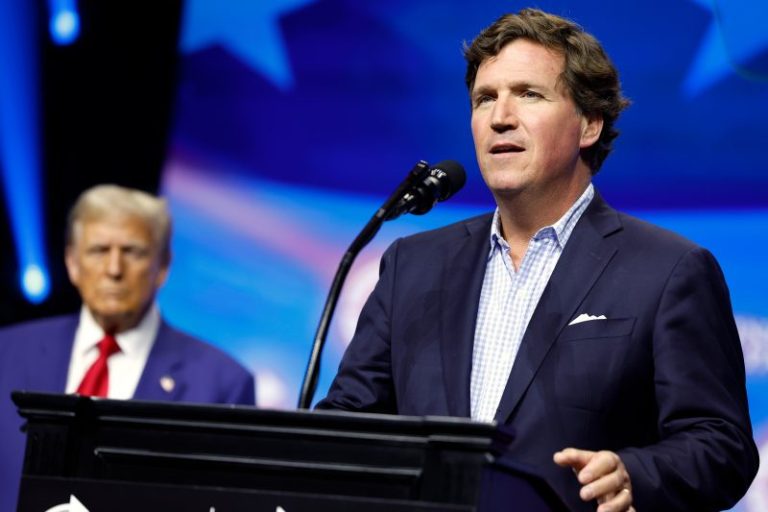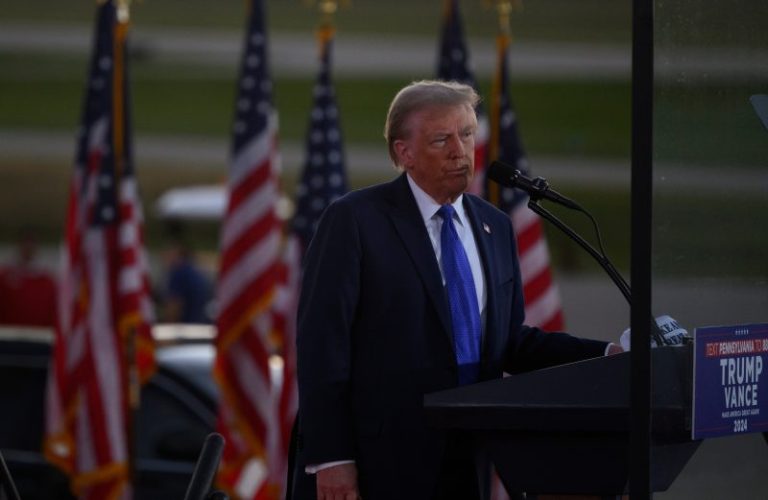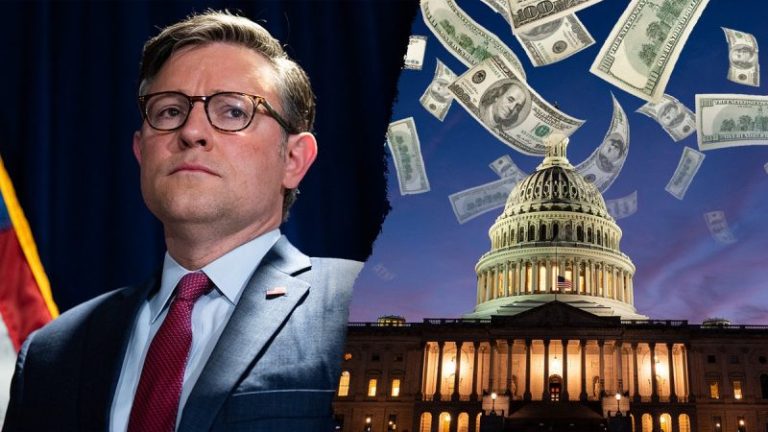
Nearly everyone agrees that the federal government has become this bloated monster that needs to be cut down to size.
The massive bureaucracy, attacked by some as evil, is absurdly overstaffed and wastes massive amounts of money.
What President Trump is doing in trying to shrink the size of government is popular – even if his billionaire budget-slasher, Elon Musk, is not – and many of the court battles are likely to be resolved in his favor.
But the equation is turned on its head when actual people feel the impact. And the media start highlighting sad cases of devastated folks. And Republican lawmakers start objecting to the cutbacks that hit home.
That’s why it’s so hard to cut the federal budget. It’s not like going into SpaceX and firing a bunch of software engineers. The political pressures can be intense.
Virtually every program in the federal budget is there because some group, at some time, convinced Congress it was a good idea. There are noble-sounding causes – cancer research, aid to veterans, subsidies for farmers.
In fact, farmers are threatened by the near-abolition of USAID – while most people hate foreign aid, food programs provide a crucial market for American farmers, many of whom are now stuck with spoiling surpluses or loans they can’t repay.
Now there’s plenty of game-playing that goes on with government programs. Let’s say, for the sake of argument, that agencies could cut one of every 10 employees without damaging their core functions.
Anyone who’s looked at the endless cycle of conferences, conventions, training confabs, office renovations and the like knows how much fat there is in these budgets. When you throw in lucrative payments to well-connected contractors, that figure skyrockets.
But when agency officials come under fire, they immediately insist that any cutbacks will instantly hurt the poor and downtrodden, or working-class folks living paycheck to paycheck. It used to be called the Washington Monument defense, the notion that any attempt to reduce funding for the Interior Department would cause the memorial’s immediate shutdown.
NIH, for instance, does world-class research that benefits the country. But the battle between Musk’s DOGE and the institute centers on how much is spent on indirect costs.
Musk says his aim is ‘dropping the overhead charged on NIH grants from the outrageous 60 percent to a far more reasonable 15 percent.’
But an NBC story is headlined: ‘NIH Cuts Could Stall Medical Progress for Lifesaving Treatments, Experts Say.’
The piece quotes Theodore Iwashyna, a physician at the Johns Hopkins School of Medicine, as saying his ‘father had pancreatic cancer, and the care plan developed for him existed only because of research funded through organizations like the NIH.’
Iwashyna says the overhead is needed for ‘computers, whiteboards, microscopes, electricity, and janitors and staff who keep labs clean and organized.’
Alabama Sen. Katie Britt, whose state is getting $518 million in NIH grants, mainly to the University of Alabama at Birmingham, is raising objections. The conservative Republican told a reporter she wants the administration to take a ‘smart, targeted approach’ so as not to endanger ‘groundbreaking, lifesaving research.’
The examples are legion. Alaska Sen. Lisa Murkowski has asked the administration not to restrict funding for diversity programs among American Indian tribes.
As the New York Times puts it, ‘some Republicans’ have sought ‘carve outs and special consideration for agriculture programs, scientific research and more, even as they cheered on Mr. Trump’s overall approach.’
Musk’s DOGE team seems to be using a meat-ax method. Why lay off hundreds of FAA technicians and engineers just weeks after the fatal plane crash at Reagan National Airport, when there’s already a major shortage of air traffic controllers?
FEMA, which is already stretched thin after the Los Angeles wildfires and the Kentucky flooding, is preparing to fire hundreds of probationary workers, reports the Washington Post. Such workers, who have been with the government for one or two years, basically have no rights.
But there has been zero effort to assess them. Some were told their performance was the issue, but showed the Post their evaluations. ‘Above fully successful,’ said one, for a fired GSA worker. ‘An outstanding year, consistently exceeding expectations,’ said the review for a fired NIH staffer.
But viewed from a different angle, the hometown paper and other outlets buy into the notion that federal employees should have tenure for life. Everyone in Washington knows that before Trump it was virtually impossible to fire such employees, even for cause.
By contrast, Southwest Airlines just announced a 15% cut of its corporate workforce. No one is rushing to interview those laid off, because this sort of downsizing is routine in the private sector. But the Beltway ethos is that federal workers are entitled to their jobs.
Now intellectual honesty requires the observation that even radical cuts to the federal payroll won’t have much impact on the $840 billion budget deficit or the $36 trillion federal debt. The bulk of the budget consists of Social Security, Medicare, Medicaid, defense spending and interest on the debt.
Can Elon Musk and DOGE at least make progress on rooting out waste, fraud and abuse? Maybe. But the level of pain being inflicted on ordinary Americans, including in red states, and the natural tendency of politicians to shield local residents from that pain, and the media’s relentless spotlight on those suffering, are going to be a giant obstacle.
This post appeared first on FOX NEWS







